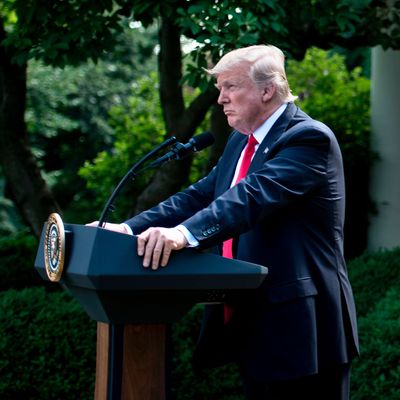
President Trump’s main beef with the Paris Agreement was that it was “very unfair” to U.S. workers and businesses. (That, and French president Emmanuel Macron was super mean to him.) Trump claimed that the financial burdens that would have been placed on the American people if the U.S. had agreed to reduce carbon emissions would have been “draconian,” and attributed the rest of his decision to his commitment to his “America First” policy, which — at its core — is focused on placing the interests of American workers and American companies above those of global entities.
But his choice to have the U.S. join Syria and Nicaragua as the only three countries whose signatures are absent on the agreement has been seriously undermined by the responses of tech-industry leaders nationwide. The biggest tech companies in the U.S. — which means the biggest companies in the world, period — have unanimously condemned Trump’s move, and committed themselves to maintaining sustainability.
True, when you say America’s “biggest” companies support the Paris Agreement, it depends on how you define “big.” Silicon Valley giants like Apple are “big” when measured by market capitalization — i.e., how rich they are — but generally aren’t very big when measured by, say, number of U.S. employees. But big employers like Amazon and GE want the U.S. to stay in the Paris Agreement, too. Twenty-five companies that range from the likes of Apple to Tiffany & Co. (a Trump-family favorite) urged the president earlier this month to sign the agreement, through the form of a full-page ad in both The Wall Street Journal and the New York Times. Trump knows what American business wants — it seems like he’s just not listening.





























